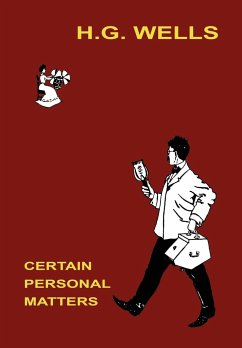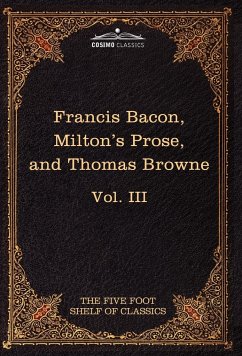
Certain Personal Matters
Versandkostenfrei!
Versandfertig in über 4 Wochen
27,99 €
inkl. MwSt.

PAYBACK Punkte
14 °P sammeln!
Certain Personal Matters by H.G. Wells is a collection of essays and reflections originally published in 1897. The book offers a series of witty and observant sketches on various aspects of everyday life, showcasing Wells's humor and keen insight into human behavior. Topics range from the trivial-like personal habits and daily annoyances-to the more profound reflections on society, science, and human nature. Through these essays, Wells captures the spirit of the late Victorian era while offering timeless observations on the quirks of life.












